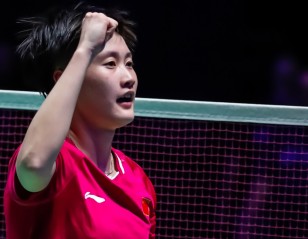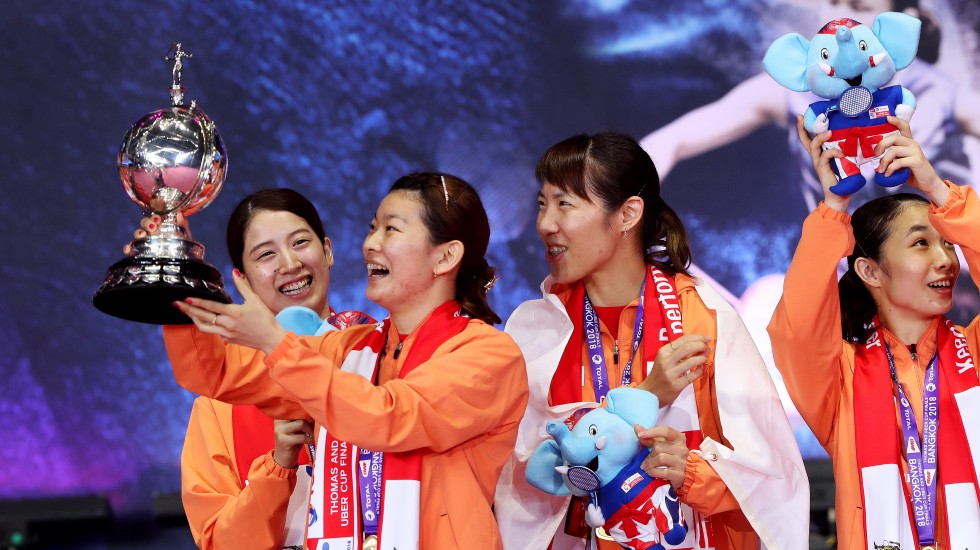
Flashback: TUC 2018 – Japan’s Well-Earned Triumph
Japan’s Uber Cup players of 2018 were not even born when the country last won the Uber Cup. Thirty-seven years had passed since that last triumph; in this period, China had become the dominant power, winning 14 of 17 editions.
Yet in the run-up to the 2018 edition, Japan had assiduously built a team that had depth in singles and doubles. Some of these players had featured in the 2014 final against China, and the team overall had sufficient big-match experience.
After a smooth passage through the group, Japan outgunned Chinese Taipei and Korea (both 3-1) before sweeping past hosts Thailand 3-0 in the final.
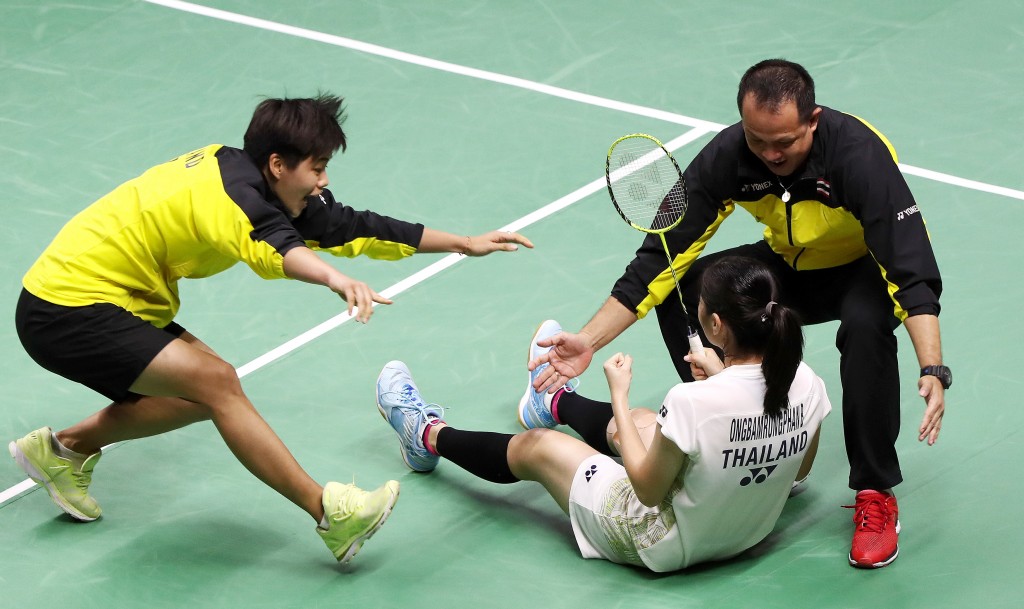
While Japan’s was a momentous triumph, the tie that caused the most ripples in the tournament was the semifinal between Thailand and China.
China’s last loss was in 2010; they had never failed to make the final.
What worked against them was inexperience. Their last generation of brilliant women’s singles players had mostly retired; the one remaining – Li Xue Rui – had suffered an injury at Rio 2016 and was far from her best.
Thailand thus leveraged their advantage in singles, with Ratchanok Intanon, Busanan Ongbamrungphan and Nitchaon Jindapol ensuring a 3-2 win over China – leading to emotional scenes in the packed stadium, and leaving the coaching staff and players in tears. It was Thailand’s first-ever ticket to a Uber Cup final.
Like China, Korea too banked on a new generation. With senior players like Chang Ye Na, Jung Kyung Eun and Kim Ha Na missing the event (Lee So Hee was also out with a back injury), Korea’s young guns acquitted themselves well. Teenagers Lee Yu Rim and Baek Ha Na were standouts, as was the then 16-year-old schoolgirl An Se Young.
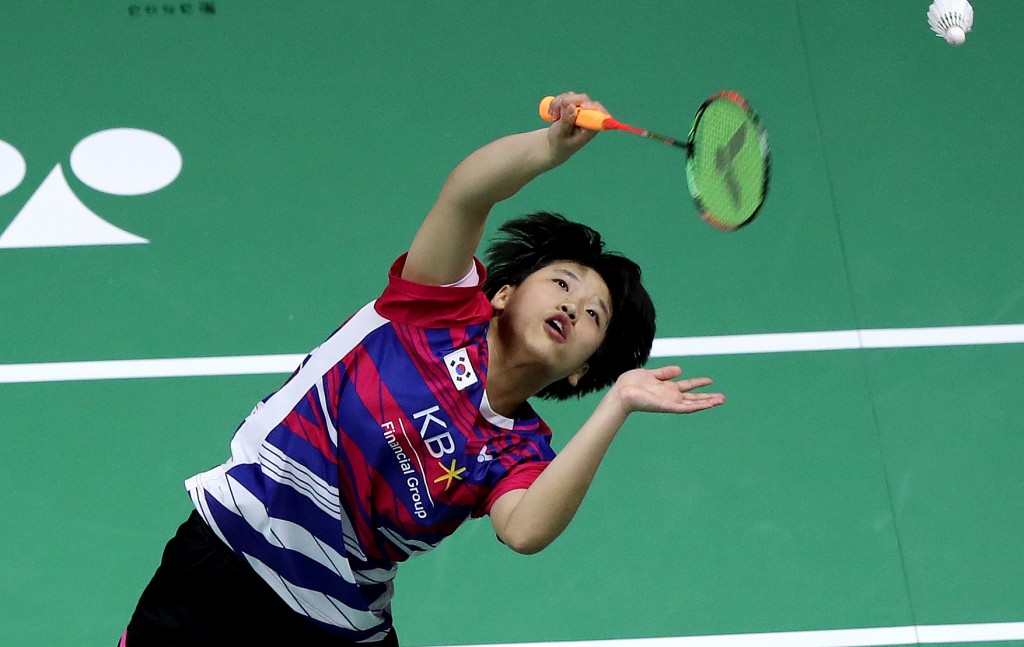
Significant Moments
*The Uber Cup saw the emergence of An Se Young, who won all her four matches. She proved her class under pressure by beating Line Christophersen in the critical fifth match against Denmark, helping Korea top Group C.
*India had arrived with an under-strength squad minus Pusarla V Sindhu, Ashwini Ponnappa and Sikki Reddy, and Canada took advantage to post a 4-1 victory in their group encounter.
*Indonesia prevailed in a close tie, 3-2, over Malaysia, with Gregoria Mariska Tunjung winning the crucial contest against Goh Jin Wei. Tunjung also shone in the final group tie against China, stopping Gao Fangjie 23-21 21-16 but she could not prevent China from topping the group.
Thomas & Uber Cup News
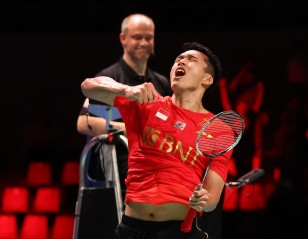
2021 in Review: Indonesia’s Gritty Thomas Cup Triumph 29 December 2021
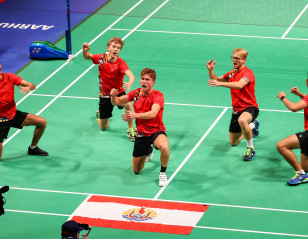
2021 in Review: Newcomers Tahiti Add Freshness, Colour 28 December 2021
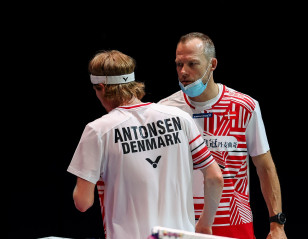
Hats Off to Indonesia, Says Kenneth Jonassen 20 October 2021
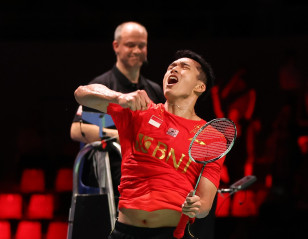
‘This Is For My Big Brother’ 19 October 2021
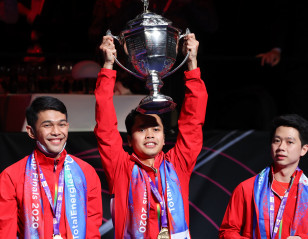
Indonesia’s 19-Year Wait for Thomas Cup Ends 18 October 2021
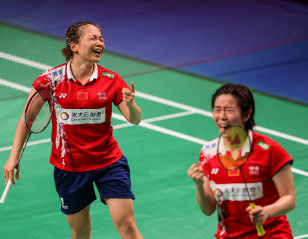
Chen and Jia Inspire Magnificent Chinese Triumph 17 October 2021
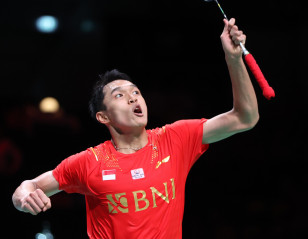
Indonesia Ride Jonatan Christie Wave 17 October 2021
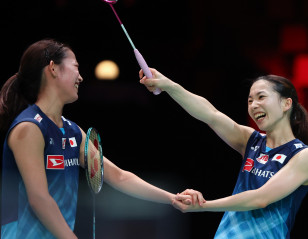
Japan, China in Uber Cup Final 16 October 2021
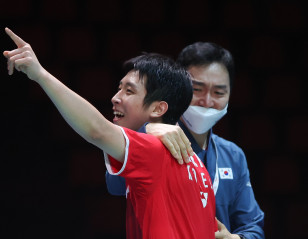
Proved a Point, Says Heo After Second Takedown of Momota 15 October 2021
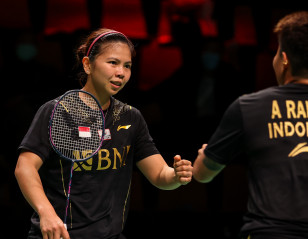
With Another Epic Example, Polii Hands Over Baton 15 October 2021

Remi Rossi and the Value of a Win for Tahiti 14 October 2021
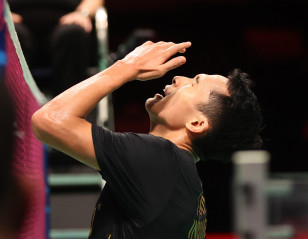
Indonesia, Thailand Survive Group of Death 13 October 2021
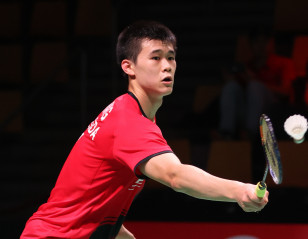
Nearly There, But Not Quite 13 October 2021
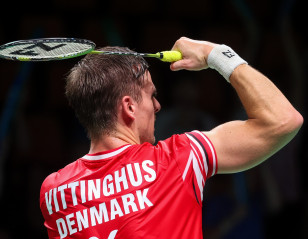
Battle-Hardened Veteran Revels in Familiar Role 12 October 2021
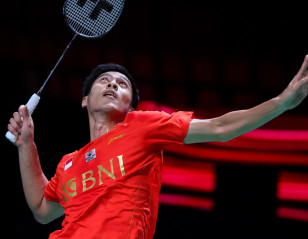
Wangcharoen Strikes Early but Indonesia Prevail 12 October 2021

Camilla Martin Wonders – ‘How Did I Do It?’ 11 October 2021
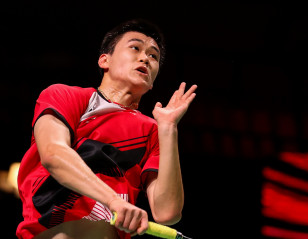
Training Stint With Gade Aids Brian Yang’s Rapid Rise 11 October 2021
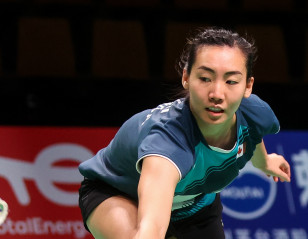
On Injury-Hit Day, Michelle Li Takes a Stance for Self-Care 10 October 2021
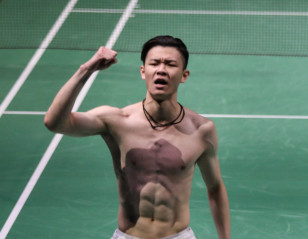
‘I’ve Grown to Become a Mature Player’: Lee Zii Jia 10 October 2021
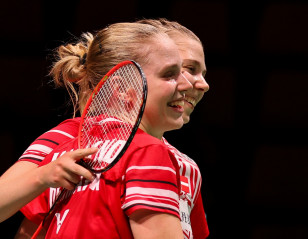
Best Friends Take Denmark Home 10 October 2021
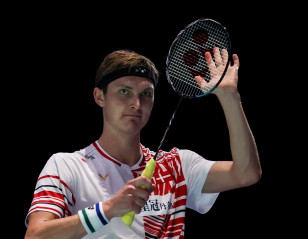
‘Dream Coming True, Playing Thomas Cup on Danish Soil’ 9 October 2021
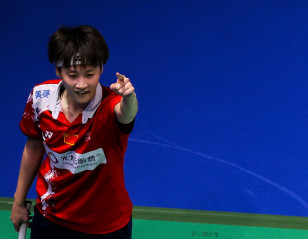
Group D Preview: China Have the Depth to Retake Uber Cup 9 October 2021
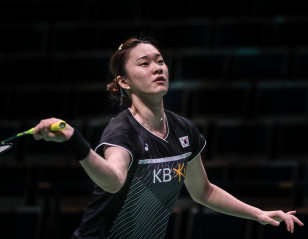
Group C Preview: For Korea, Kim Gaeun’s Form Will Be Key 8 October 2021

The Thomas Cup Story, as Recalled by an Icon 7 October 2021
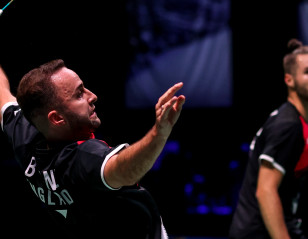
Injury-Hit England Withdraw From Thomas Cup 6 October 2021
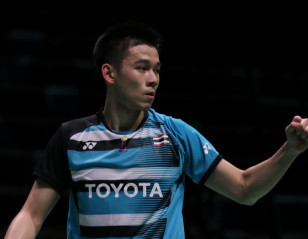
Group A Preview: Indonesia, Chinese Taipei Will Be Wary of Thailand 6 October 2021
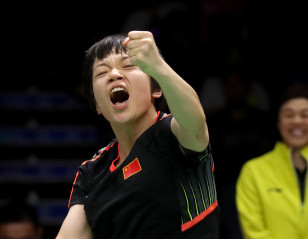
China Feature in Opening Uber Cup Tie 30 August 2021

Hosts Denmark in Challenging Group 18 August 2021

TUC 2020 Postponed; Denmark Open to Proceed 15 September 2020

Update on TOTAL BWF Thomas and Uber Cup Finals 2020 12 September 2020

Herbert Scheele’s Thomas Cup Story 3 September 2020

BWF Ready for the Return to International Badminton 28 August 2020

BWF Announces Adjusted Tournament Calendar for 2020 27 August 2020

TOTAL BWF Thomas & Uber Cup Finals 2020 Draw 3 August 2020
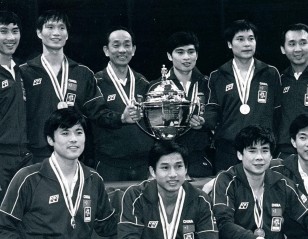
On This Day: China Lift Thomas Cup at First Time of Asking 21 May 2020
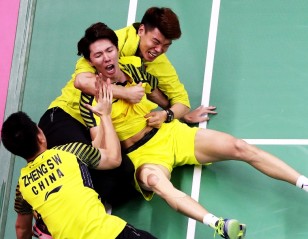
Flashback: TUC 2018 – China’s Young Guns Come Good 21 May 2020

New Dates for TOTAL BWF Thomas and Uber Finals 2020 29 April 2020

Update on TOTAL BWF Thomas and Uber Cup Finals 2020 7 April 2020

Conrad-Petersen to Bid Adieu After Thomas Cup 27 March 2020

TOTAL BWF Thomas and Uber Cup Finals 2020 Postponed 20 March 2020

On This Day: USA Ace First Ever Uber Cup Final 18 March 2020
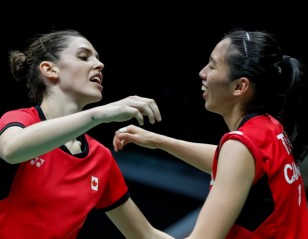
French Stint Aids Honderich & Tsai 5 March 2020
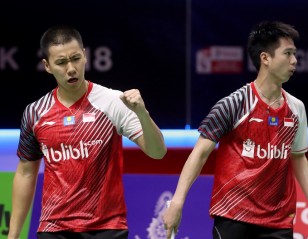
Indonesia, Japan Top-Seeded for TUC 4 March 2020

Russia’s TUC Withdrawal Opens Door for Germany, Spain 2 March 2020
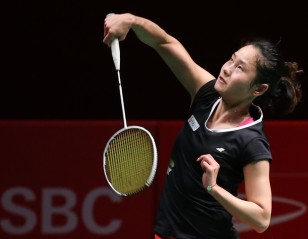
Qi Xuefei Inspired by ‘Role Model’ Pi Hongyan 29 February 2020
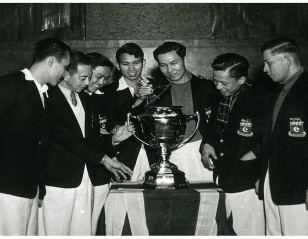
On This Day: Underdogs Malaya Become Inaugural Thomas Cup Champs 26 February 2020

Flashback: Unfancied Mexicans Defy Expectations, Qualify for First Thomas Cup 23 February 2020

TUC 2020 Lineup is Complete! 20 February 2020

Flawless Denmark Issue Rivals Stark Warning 17 February 2020

On This Day: Betty Uber Wins 50th Straight International 14 February 2020

Update on Badminton Asia Team Championships 2020 11 February 2020

Aarhus Awaits the World 6 February 2020
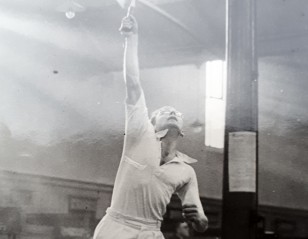
The Legacy of Frank Peard, First Thomas Cupper 7 October 2019

Flashback: Vittinghus Heroics Win Thomas Cup for Denmark 5 September 2019
